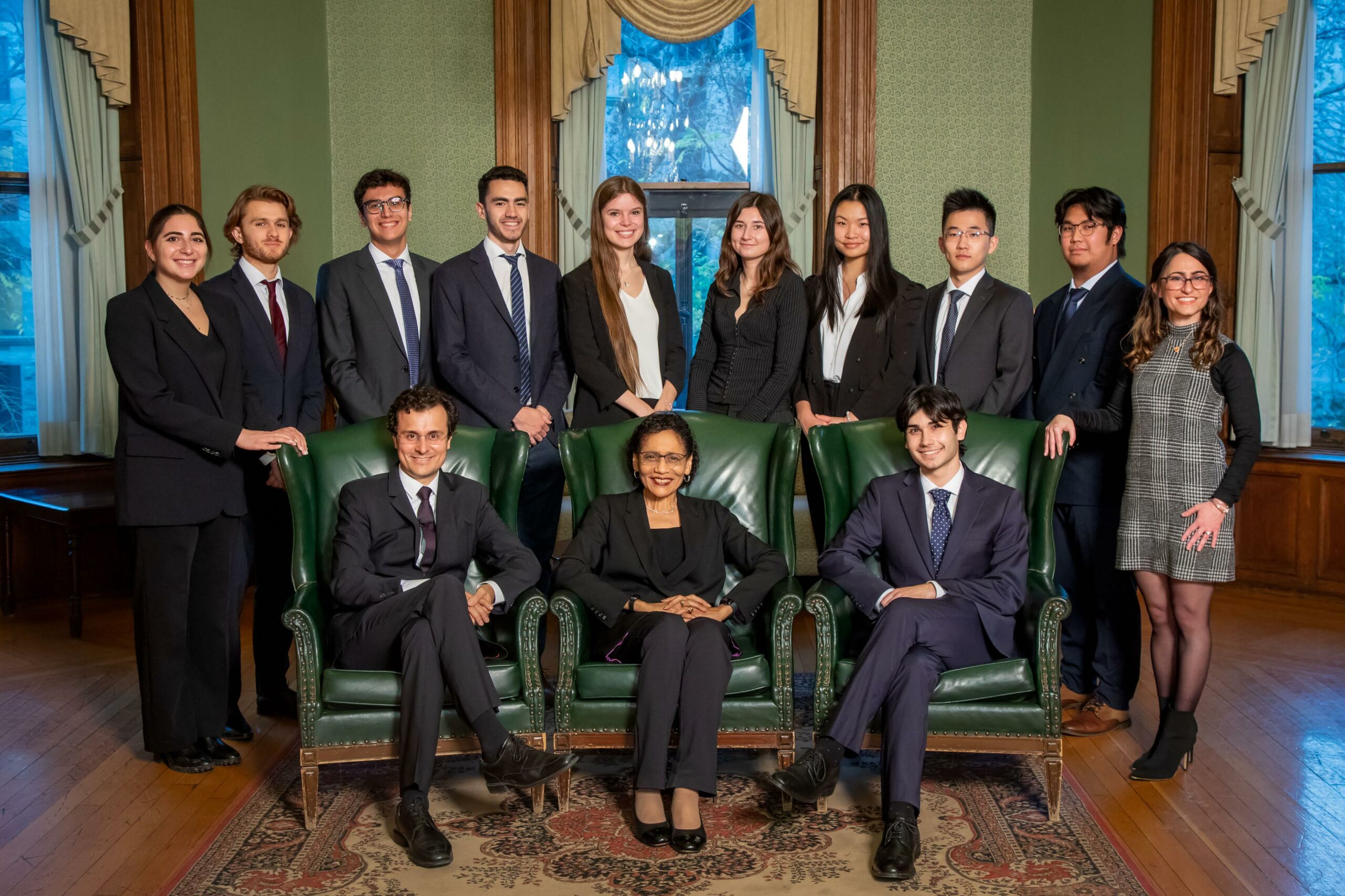
Climate change is a multifaceted challenge, and every sector of the economy will need to be more sustainable to rise to it. In 2015, the Paris Agreement set a target of net zero emissions by 2050, and that means that by mid-century, the amount of greenhouse gas emitted in to the atmosphere will need to equal the amount removed from it. Nearly 200 countries pledged to meet that target, but there is still a long way to go.
The 2022 McGill International Portfolio Challenge (MIPC) asked undergraduate students to consider this transition from an asset manager’s perspective. How do we get there from here?
Institutional investors have a key role to play. The industry will need to allocate capital differently, and at the sixth annual MIPC, 96 teams comprising students from 21 countries considered some of the choices that institutional funds will need to make. Participants were asked to devise innovative portfolio strategies that could achieve high returns, while also ensuring a sustainable future.
The teams competed for $50,000 in cash prizes at the event, which was presented by the Ontario Teachers’ Pension Plan (OTPP). The MIPC’s founding partners include many of the biggest names in asset management, such as Blackrock, the Caisse de dépôt et placement du Québec (CDPQ), CPP Investments, CIBC, and Public Sector Pension Investments.
In the 2022 MIPC, students considered the complex trade-offs faced by a fictional superannuation fund in Australia, where contributions to a national superannuation program are compulsory for all workers. Institutional investors at the ‘SuperEasy’ fund will need to make choices about whether diversification should be sacrificed for decarbonization, how investments should be approached when environmental and social governance information is lacking, and whether funds should divest from fossil fuels, when so much of the economy still relies on them. None of these questions have straightforward answers.
“The 2022 MIPC was a great opportunity to give students a view in to some of the questions that investors are facing,” said Audrey Gaspar, the Managing Director of Treasury & Integration at OTPP. “It asked all participants the same question, but the teams represented different schools, countries, and regions. They came at that question from different perspectives, and made different recommendations.”
Two teams won the MIPC’s $12,500 OTPP Top Proposal prize: APM Capital of University of Sydney in Australia, and CAVA Capital of the Chinese University of Hong Kong. The $7,500 CIBC Asset Management Runner-up prize went to Terra Capital of the University of Toronto. The other two finalists were Team Trees of The University of British Columbia, and Paragon Capital of the University of New South Wales – Sydney. Each earned a $3,500 prize.
“Making the top five is a very impressive achievement. The students from all 96 teams put in a tremendous effort this year – and the advisors behind those teams did too,” said Sebastien Betermier, an Associate Professor of Finance at Desautels, and the Director of the MIPC. “We were blown away by the level of effort that teams put in this year, and we really saw it in the results.”
Thanks to its sponsors, the MIPC is one of the world’s most lucrative student competitions. It brought together teams from around the world, and to accomplish that, it relied on a team of McGill students. The 10-member student organizing team was instrumental to the event’s planning and staging, and Claudio Cichi served as its Executive Director.
“The MIPC is a truly remarkable event that bridges the gap between academia and finance,” said Cichi, a fourth-year Bachelor of Commerce student at the Desautels Faculty of Management.
“It brings together some of the world’s brightest minds to solve relevant and complex socio-economic issues.”
